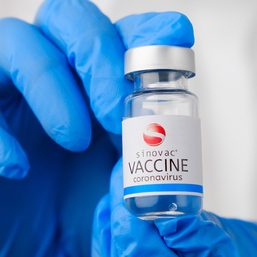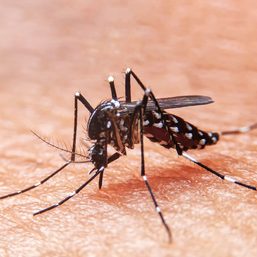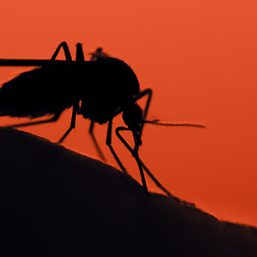SUMMARY
This is AI generated summarization, which may have errors. For context, always refer to the full article.
![[New School] A public health issue behind bars](https://www.rappler.com/tachyon/2021/03/NS-prison-healthcare-1.jpg)
The Duterte administration’s war on drugs brought forth a rapid increase in the number of people held in detention and prison facilities. The Bureau of Jail Management and Penology (BJMP) recently recorded a congestion rate of 534% in 467 facilities nationwide.
In addition to overcrowding, prisons in the Philippines have poor ventilation, limited food supply with low nutritional value, unhygienic conditions, and inaccessible medical care. Mental health issues also arise due to isolation and lack of privacy. It is easy to see how the dire circumstances in Philippine prisons lead to a multitude of health problems for prisoners.
With the high prevalence of communicable diseases such as tuberculosis and HIV, non-communicable diseases such as diabetes and hypertension, and even mental disorders such as depression and trauma affecting prisoners, Boris Michel, the Manila chief of the International Committee of the Red Cross (ICRC) noted that “health problems in places of detention…require a public health approach that benefits the entire society.” Hence, the health of prisoners in the Philippines should be regarded as a public health issue, and equal access to health services in the country should be provided without discrimination on the grounds of their legal status.
As stated by Department of Science and Technology senior science research specialist Melissa Bulao, health in detention is a multi-sectoral issue, because the needs of the general community also apply to the needs of the prisoners. Deprivation of these needs poses risks to the health of prisoners. According to hospital medical chief Ernesto Tamayo, about 5,200 inmates die annually due to congested prisons, unhygienic living conditions, and lack of accessibility to basic health care.
The United Nations (UN) acts as the fundamental basis for the provision of health care to imprisoned persons. Its principle highlights “the fundamental right of everyone to the enjoyment of the highest attainable standard of physical and mental health.” Clearly, this right extends to prisoners and detainees as well. Yet, Philippine prisons failed to meet these UN standards.
According to Human Rights Watch, the additional thousands of detainees from the administration’s war on drugs pushed the already crammed prisons into even worse overcrowding, and further affected the standard amount of food, proper nutrition, and sanitation. Additionally, the COVID-19 pandemic in March 2020 also imposed heightened health and safety risks for prisoners and detainees, as social distancing and health protocols were almost impossible to implement.
Withholding prisoners from access to health services may lead to future health concerns. Outbreaks may occur in detention facilities if the health of prisoners are not monitored, and such an outbreak may ultimately cause a health crisis for the country as well.
The country, however, lacks funds; in fact, it is drowning in debt. When ensuring efficient use of scarce resources, opportunity cost should always be taken into account. In a country with a plethora of human rights abuses, ensuring the human rights of prisoners in the form of quality health care may be a lower priority for some. Some even believe that they should not be given equal access to health care, and that other matters in society should be focused on instead.
In addition, harsher conditions in jails might also be perceived as a factor to deter people from committing crimes in the future. Thus, the prevalence of this line of thinking poses a difficult challenge in convincing Filipinos of the value of providing prisoners with equal access to health care.
But prisoners are human beings. They are a part of society and should be cared for. Studies show that prisoners have a higher rate of mental disorders and are a high risk group for suicide. While it is understandable why people believe they should not be given equal rights to health care, this neglects the fact that some of the reasons these people do what they do is because they are mentally ill and have not had any help. Becoming a prisoner does not equate to becoming helpless. The purpose of prisons is to correct and reform criminals, not only for them to serve their time in jail. We cannot expect this objective to succeed if their physical and mental health are ignored and not cared for.
The criminal justice system should be primarily about rehabilitation – not merely punishment – to serve as preparation for re-entering society as better people. Moreover, the vast majority of inmates will return to society after a designated time.
Prison reform is a good cause if influential organizations such as the media, charity institutions, and others can spread awareness about these misinterpretations and stereotypes surrounding prisons. Conducting seminars, fundraising events, and other similar techniques will be an effective way to disseminate and discuss the said information. In this way, the public may develop a different view of prison and prisoners. When they understand that these prisoners need help, just like any other person suffering from any disorder, they might come to realize that it is only right that these prisoners be given proper and equal health services to aid in their rehabilitation. This will also help lessen the discrimination regarding prisoners’ legal status.
The more people there are who understand and advocate for this cause, the sooner proper and equal health services for prisoners can be achieved. In addition, the overall economy of the country will benefit, since fewer resources will be used in the long run.
As the most powerful and influential people here in the country, government officials should use their platform to create and implement laws that consider the health of prisoners as a public health issue. As public servants, it is their duty to ensure that the health and well-being of their countrymen, including prisoners, is prioritized.
For us ordinary Filipinos, it is our job to help prisoners by promoting awareness on this issue on different platforms, such as social media, so that our officials recognize this as a public issue that calls for immediate action. – Rappler.com
The authors are senior high school students from the University of Santo Tomas. This piece was a group effort for their English for Academic and Professional Purposes class.
Add a comment
How does this make you feel?
![[OPINYON] Pangangalaga sa mga Persons Deprived of Liberty](https://www.rappler.com/tachyon/2020/12/ispeak-pdl-1280.jpg?fit=449%2C449)

![[Rappler’s Best] US does propaganda? Of course.](https://www.rappler.com/tachyon/2024/06/US-does-propaganda-Of-course-june-17-2024.jpg?resize=257%2C257&crop=236px%2C0px%2C720px%2C720px)








There are no comments yet. Add your comment to start the conversation.